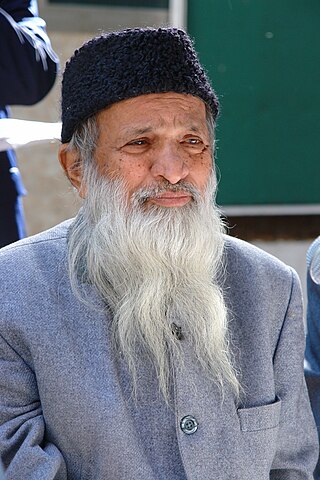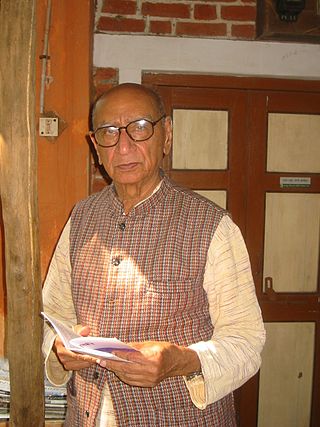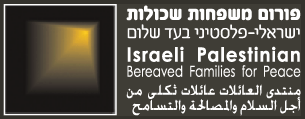Background
The UNESCO-Madanjeet Singh Prize for the Promotion of Tolerance and Non-Violence prize is dedicated to advancing the spirit of tolerance in the arts, education, culture, science and communication.
"We, the peoples of the United Nations determined to save succeeding generations from the scourge of war,... to reaffirm faith in fundamental human rights, in the dignity and worth of the human person,... and for these ends, to practise tolerance and live together in peace with one another as good neighbours" Charter of the United Nations
In 1945, the founders of the United Nations looked to tolerance as a key to peaceful coexistence for the peoples of the world. Their cautionary words are as true in our own time.
In 1995, the United Nations Educational, Scientific and Cultural Organization led a worldwide mobilization in favor of tolerance, non-violence and appreciation of cultural diversity. The UN's fiftieth anniversary year was declared the United Nations Year for Tolerance. The Year's calendar of events included regional conferences and intergovernmental dialogue, concerts, film and theatre festivals, essay and poster contests, broadcasts and publications of all kinds, in partnership with regional and non-governmental organizations. In 1996, an equally dynamic follow-up programme to the Year got underway.
In the frame of the Year, and in connection with the 125th anniversary of the birth of Mohandas Gandhi, UNESCO established a new international award, the UNESCO-Madanjeet Singh Prize for the Promotion of Tolerance and Non-Violence.
This prize of US $100,000 is awarded once every two years for exceptional contributions and leadership in the field of tolerance promotion. The winner may be either an individual or an institution. Writers, educators, artists, scientists, statesmen, pioneering institutions and leaders of public opinion - all these and others may be nominated. The prize may also be awarded to the families of outstanding individuals who have lost their lives in the struggle against intolerance.
The prize was made possible by the generous donation of the Indian artist, writer and diplomat Madanjeet Singh, who is also Goodwill Ambassador of UNESCO. Mr Singh was a follower of Mahatma Gandhi, and served nine months in Mirzapur jail during the "Quit India" movement against British colonial rule. He received the Indian Government's "Tamra Patra" Freedom Fighter award in 1972. In addition to a distinguished career in diplomacy and the arts, he has authored numerous books on topics ranging from Himalayan art to solar energy.
Prize
In 1996, the Prize was awarded to the association of 32 non-governmental women’s organizations Pro-femmes Twese Hamwe ("All Together") of Rwanda. The two laureates in 1998 were the educator and peace activist Narayan Desai of India and the Joint Action Committee for Peoples Rights of Pakistan. In 2000, the laureate was Pope Shenouda III, the head of Egypt’s Coptic Orthodox Church. Aung San Suu Kyi of Myanmar was named laureate in 2002. [2] In 2004, the laureate was Taslima Nasreen, writer from Bangladesh. [2] The 2006 Prize was awarded to Veerasingham Anandasangaree from Sri Lanka, President of the Tamil United Liberation Front (TULF) for being a "tireless defender of democracy and peaceful conflict resolution [who] has helped improve knowledge of the Tamul cause, through dialogue, through the promotion of non-violent solutions in Sri Lanka and by taking a stand against terrorism." The 2009 Prize was awarded to François Houtart for "his life-long commitment to world peace, intercultural dialogue, human rights and the promotion of tolerance, and in recognition of his outstanding efforts to advance the cause of social justice in the world" and Abdul Sattar Edhi for "his life-long efforts to ameliorate the conditions of the most disadvantaged groups in Pakistan and South Asia, and to promote the ideals of human dignity, human rights, mutual respect and tolerance." [3]

Aung San Suu Kyi, sometimes abbreviated to Suu Kyi, is a Burmese politician, diplomat, author, and a 1991 Nobel Peace Prize laureate who served as State Counsellor of Myanmar and Minister of Foreign Affairs from 2016 to 2021. She has served as the general secretary of the National League for Democracy (NLD) since the party's founding in 1988 and was registered as its chairperson while it was a legal party from 2011 to 2023. She played a vital role in Myanmar's transition from military junta to partial democracy in the 2010s.

Pope Shenouda III was the 117th Pope of Alexandria and Patriarch of the See of St. Mark. His papacy lasted 40 years, 4 months, and 4 days, from 14 November 1971 until his death.

The Gandhi Peace Award is an award and cash prize presented annually since 1960 by Promoting Enduring Peace to individuals for "contributions made in the promotion of international peace and good will." It is named in honor of Mohandas Karamchand Gandhi but has no personal connection to Mohandas Gandhi or any member of his family.
The Sakharov Prize for Freedom of Thought, commonly known as the Sakharov Prize, is an honorary award for individuals or groups who have dedicated their lives to the defence of human rights and freedom of thought. Named after Russian scientist and dissident Andrei Sakharov, the prize was established in December 1988 by the European Parliament.

Abdul Sattar EdhiNI LPP was a Pakistani humanitarian, philanthropist and ascetic who founded the Edhi Foundation, which runs the world's largest ambulance network, along with homeless shelters, animal shelters, rehabilitation centres, and orphanages across Pakistan.
The Rafto Foundation for Human Rights was established in 1986 in memory of Thorolf Rafto, a professor of economic history at the Norwegian School of Economics (NHH) and a human rights activist. The main objective of the Rafto Foundation is the promotion of freedom of political expression and enterprise. The work of the foundation consists of different educational and informative projects, including the annual award of the Rafto Prize (Raftoprisen) each November. The foundation is based in Bergen, Norway and run by a small team of professionals and volunteers.
The Professor Thorolf Rafto Memorial Prize (Raftoprisen) is a human rights award established in the memory of the Norwegian human rights activist, Thorolf Rafto.
The United Nations General Assembly proclaimed 1995 the United Nations Year for Tolerance with UNESCO as the lead organization.

The International Day for Tolerance is an annual observance day declared by UNESCO in 1995 to generate public awareness of the dangers of intolerance. It is observed on 16 November.

François Houtart was a Belgian marxist sociologist and Catholic priest.

Federico Mayor Zaragoza is a scientist, scholar, politician, diplomat, and poet from Spain. He served as the Director-General of the United Nations Educational, Scientific, and Cultural Organization (UNESCO) from 1987 to 1999. After his tenure as Director-General, he continued to participate in various peace-related organizations such as the Foundation for a Culture of Peace and the International Decade for the Promotion of a Culture of Peace and Non-Violence for the Children of the World, as a member of their honorary boards. Additionally, he serves as the honorary chairman of the Académie de la Paix.

Narayan Desai was an Indian Gandhian and author.
Veerasingham Anandasangaree is a Sri Lankan Tamil politician, former Member of Parliament and leader of the 'rump' group of Tamil United Liberation Front, which had lost its popularity among the Sri Lankan Tamils. He is commonly known as Sangaree. A vocal critic of violence committed by all sides, Sangaree is a supporter of federalism similar to that of India as a solution to Sri Lanka's ethnic conflict.
Pro-Femmes Twese Hamwe is a national women's organization in Rwanda founded in 1992 that is recognized internationally for its contributions to rebuilding society after the 1994 Rwandan genocide. These women took on the role of reconstructing what had been damaged. In order to restore Rwanda the women created projects to improve the economy, establish peace, and offer new opportunities. The 13 women that started this organization were determined to speak out for injustices, especially against women, so they became a voice for change. The genocide incident caused great destruction; however, since 1994 the organization has grown to include 58 member associations. These women work hard to make the changes and help the minorities grow and develop.
Madanjeet Singh was an Indian diplomat, painter, photographer, and writer.

International Day of Non-Violence is observed on 2 October, the birthday of Mahatma Gandhi. It was established on 15 June 2007 according to United Nations General Assembly resolution A/RES/61/271. The day is an occasion to "disseminate the message of non-violence...through education and public awareness...and reaffirm the desire for a culture of peace, tolerance, understanding and non-violence". It is not a public holiday, but is observed around the world in various ways, often to draw attention to global issues. Its date and purpose correspond with those of the Indian national public holiday of Gandhi Jayanti.

The Parents Circle-Families Forum is a grassroots organization of Palestinian and Israeli families who have lost immediate family members due to the conflict. The PCFF operates under the principle that a process of reconciliation is a prerequisite for achieving a sustained peace. The PCFF is also known as Israeli Palestinian Bereaved Families for Reconciliation and Peace and as Bereaved Families Supporting Peace, Reconciliation, and Tolerance.
Anarkali Kaur Honaryar is a Sikh Afghan politician. She is also a women's rights activist and a dentist, as well as a medical doctor.

Nancy Diane Erbe is an American negotiation, conflict resolution and peacebuilding professor at California State University, Dominguez Hills (CSUDH). Over the course of her career, she has collaborated with a wide spectrum of individuals and groups representing more than 80 countries, from colleagues and associates to clients and students, on these issues. She is a Fulbright Scholar, Senior Specialist in Peace and Conflict Resolution, and a Fulbright Distinguished Chair. She has received four Fulbright Honors to date including two in the same year (2015) which is extremely rare. She is the recipient of the Presidential Outstanding Professor Award-2015. In 2015 she along with her husband facilitated the start of the Arab world's first Master's Program in Peace Studies in West Bank. She has been a reviewer for Fulbright Commission in Egypt since 2016.










